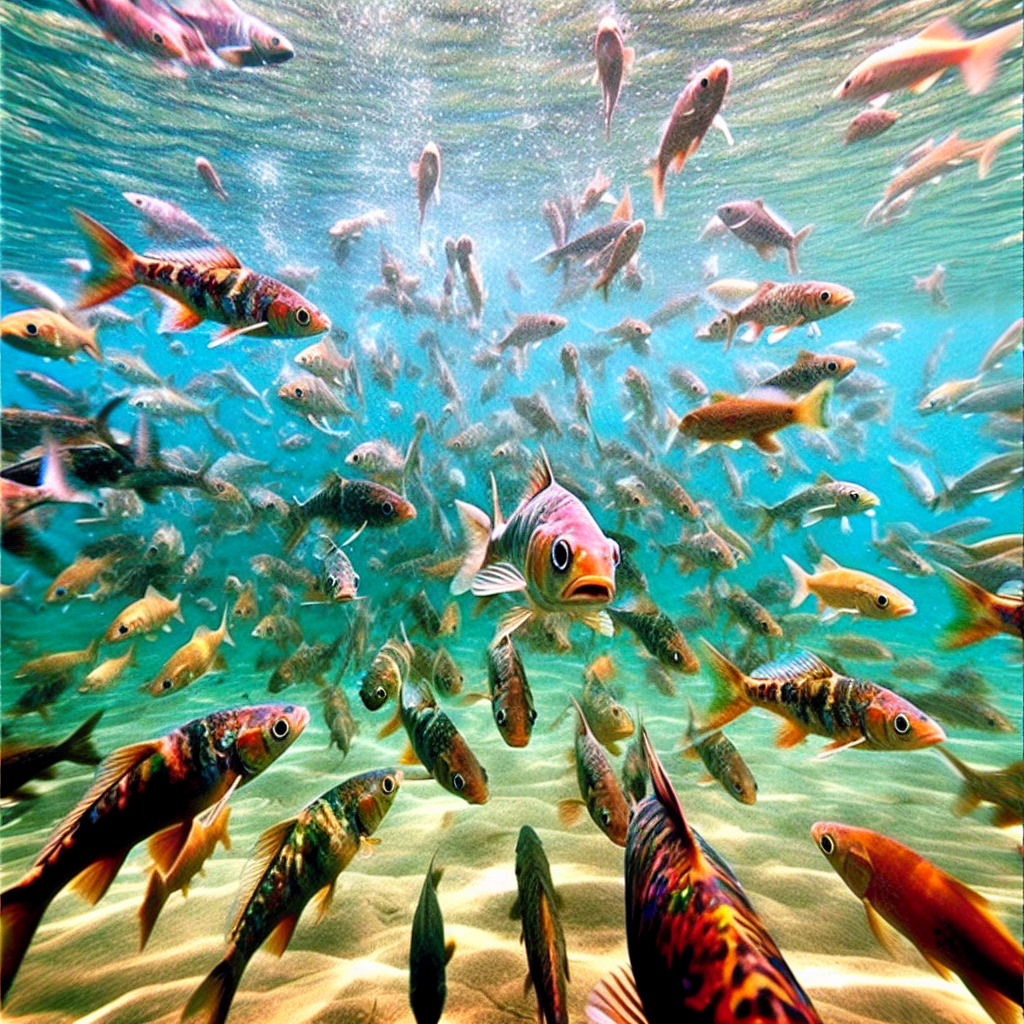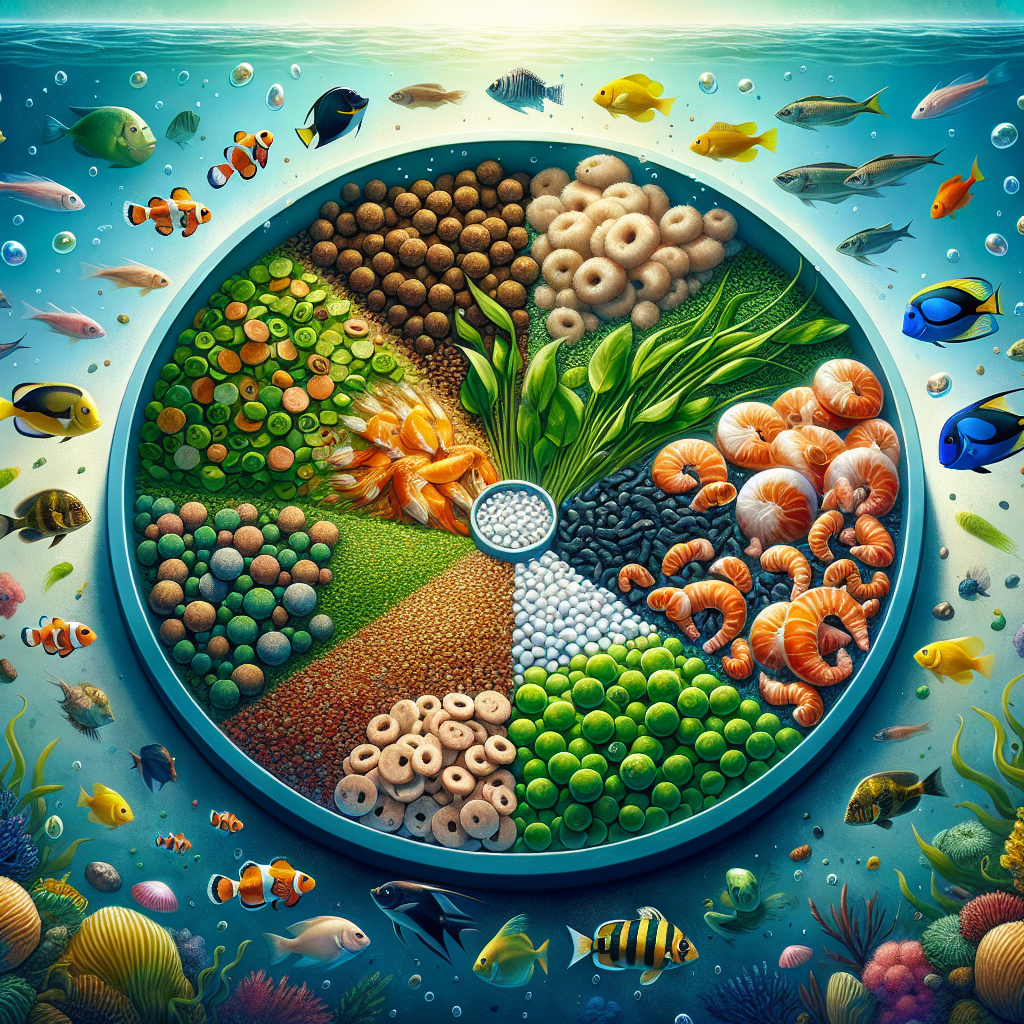Understanding Stress in Fish
When we think of aquariums, we often envision tranquil environments that soothe the observer. However, for the fish themselves, life in the tank can sometimes be stressful. Understanding stress responses and coping mechanisms in fish is crucial for any aquarist looking to maintain a healthy and thriving aquarium community.
Signs of Stress in Fish
Fish don't have the means to communicate discomfort as humans do, but they exhibit several signs that can indicate stress. These symptoms may include faded coloration, rapid gill movement, lethargy, erratic swimming, loss of appetite, or rubbing against tank decorations—a sign they may be trying to remove irritants like parasites.

Stressful Aquarium Factors
Several factors can trigger stress in aquarium fish. Poor water quality, inappropriate water temperature, inadequate diet, excessive noise, overcrowding, aggressive tank mates, and inadequate hiding places are common stressors. As responsible caretakers, it’s important to manage these factors to ensure the well-being of the aquatic inhabitants.
Poor Water Conditions
Ammonia, nitrites, and fluctuating pH levels can be lethal. Regular water testing and maintenance are crucial. Investing in a reliable aquarium water testing kit is a must for every hobbyist.
Temperature and Diet
Fish are ectothermic, meaning they rely on their environment to regulate body temperature. An aquarium heater or chiller can help maintain optimal conditions. Similarly, providing a varied and species-appropriate diet can prevent nutritional deficiencies and related stress.

Behavioral Coping Mechanisms
When faced with stress, fish employ coping mechanisms, which can be seen in behaviors like schooling, hiding, or even changing color patterns. Schooling provides safety in numbers, while having plenty of rocks and plants offers hiding spots that can reduce stress.
Physical Stress Responses
On a physiological level, stressed fish produce stress hormones like cortisol. While this is a natural short-term reaction, prolonged exposure to stress hormones can weaken the immune system, leading to disease or even death.
Creating a Stress-Free Environment
Establishing a serene habitat is integral to the health of fish. This includes proper tank cycling before introducing fish, choosing compatible species, providing ample space, and replicating a natural environment with plants, substrates, and shelter.
Natural Decor and Hiding Places
Incorporating live plants, caves, and driftwood can not only beautify your aquarium but also provide essential hiding spots for fish. To get started, consider these popular aquarium decorations:
Minimizing Aquarium Stress
Minimizing stress in your aquarium is vital for fish welfare. Regular, gentle maintenance routines, observing your fish for changes in behavior, and avoiding overfeeding are simple yet effective strategies. Remember, a tranquil aquarium is not just aesthetically pleasing but also a sign of healthy, stress-free fish.
Watching for Warning Signs
Becoming attuned to your fish's normal behavior will help you quickly identify stress indicators. This attentive practice is critical for early intervention and ensuring the longevity of your aquatic friends.
Enriching Fish Lives
Just like any other pets, fish benefit from environmental enrichment. This can involve varying the landscape of the aquarium or introducing new and safe objects for them to explore. These actions can stave off boredom and stress significantly.
Interactive Aquarium Features
Adding features like bubble walls or gentle currents can provide not only visual appeal but also opportunities for fish to play and exercise, reducing stress and increasing their quality of life.
Caring for Your Aquarium
By understanding stress responses and implementing coping mechanisms within the aquarium, aquarists can ensure their fish lead the happiest lives possible. Reducing stress isn't just humane; it's integral to achieving a balanced, vibrant underwater ecosystem that will thrive for years to come.
For more information on healthy ways to cope with stress, you can also read this external resource: Tips for Coping with Stress|Publications|Violence Prevention|Injury ...